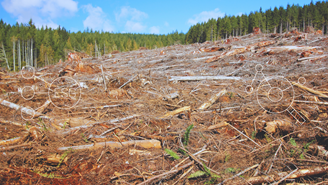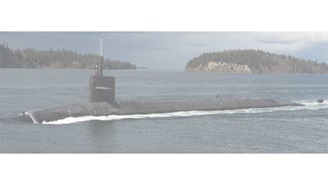Regulating the Chemicals Industry: How does REACH impact Companies?
Chemical substances are part of our daily lives. They are found everywhere from the cleaning detergents we use to the clothes we wear and our personal electronics. The companies that produce these chemicals, some of which can be hazardous and have a negative impact on human health and the environment, are exposed to several risks and are highly regulated. In Europe, the Registration, Evaluation, Authorisation and Restriction of Chemicals (REACH) regulation focuses on ensuring the safe use of chemicals, as well as the phasing-out of the most harmful chemical substances. As the third and final REACH registration deadline approaches, we take this opportunity to look at the impact of chemical regulations on the sector and investors.
GDPR and the Right to Privacy
On May 25, 2018, General Data Protection Regulation (GDPR) will enter into force, repealing the 1995 non-legally binding European Union (EU) Data Protection Directive. GDPR enhances European citizens’ right to privacy by enshrining the “right to be forgotten,” establishing concepts like “privacy by design” and by setting aggressive timelines for businesses to report data breaches.
Pipeline Power Play: Kinder Morgan puts the Trans Mountain Expansion on Hold
On April 8th, Kinder Morgan (NYSE: KMI) and its Canadian subsidiary announced a suspension of work on its Trans Mountain Expansion pipeline (TME) until May 31 as resistance to the project comes to a head. The project, which would carry to market the glut of oil sands production in Alberta, is one of the few proposed pipeline megaprojects in Canada that remains underway. Despite this setback, the delay may not have a long-term negative impact on shareholder value. In our view, the suspension is not a capitulation but an ultimatum to push the Canadian government and the province of British Columbia (BC) to provide regulatory certainty for the project.
Commentary on New Department of Labor Guidance
On April 24th, the US Department of Labor (DOL) released a Field Assistance Bulletin (FAB), seeking to clarify how environmental, social and corporate governance (ESG) factors should be considered under the Employee Retirement Income Security Act (ERISA).
ESG in Australian Banking: A look at the Royal Commission Inquiry
The ongoing Government-appointed Royal Commission inquiry into misconduct in the banking and financial sector has put Australian financial institutions at the centre of a storm of public outrage, media attention and investor concern. Daily headlines are revealing a litany of wrongdoing and raising questions about what went wrong, and the reforms needed to fix it.
Moving the Fashion Industry Forward: Regulations and Industry Tools
Five years ago, the world was awakened to the reality of garment manufacturing conditions in Asia, and specifically in Bangladesh. The production of clothes for the developed markets was posing life-threatening hazards for Bangladeshi garment workers. The Rana Plaza factory collapse, which killed 1,100 people and severely injured 2,000, raised awareness among industry organizations, governments, investors and the public about fundamental human rights issues as well as poor working conditions in the region.
Battle over Western Sahara is moving into court rooms
Polisario Front, recognised by the United Nations as the legitimate representative of the people of Western Sahara (WS), announced that it will initiate new legal proceedings before EU Courts. The announcement came after the EU Council authorized the EU Commission to negotiate with Morocco for a new fisheries protocol. Interestingly, the EU council said that that the fishing agreement negotiations will also cover WS, a former Spanish colony which was annexed by Morocco in 1975.
Earth Day 2018: Rethinking Plastic Globally
Earth Day 2018 is focused on ending plastic pollution and “fundamentally changing human attitude and behavior about plastics.” Although more work is needed, some positive change is already happening. In this blog article, we examine some of the impacts of plastic pollution on our oceans, the regulatory and industry developments being implemented to curb it, and the role investors can play to reduce plastic ocean waste.
Facebook’s New Era: The Regulatory Implications of the Cambridge Analytica Incident
The collection and monetization of users’ data is a core part of Facebook’s strategy. However, Cambridge Analytica’s (CA) unauthorized collection and exploitation of this data exposes both the breadth and complexity of the information it has on individuals as well as the insidious nature of the methods used to collect it.
Transition Risk for Oil & Gas Companies: Addressing the Disclosure Gap
As the world transitions towards a low-carbon economy, investors are increasingly interested in how oil and gas companies plan to address related risks. Most companies in the industry recognize that their business is exposed to risks related to carbon regulations, decreasing demand for its products, or increasing costs related to the implementation of emission reduction technologies. However, when it comes to addressing these risks, disclosure is limited (as we noted in our July 2017 blog post on the Task Force for Climate-Related Financial Disclosures [TCFD]). Oil and gas companies will have to increase and improve their disclosure if they want to convince investors of the viability of their business model in a carbon-constrained world.
Managing Portfolio Exposure to Firearms: What investor can do
The February 14 mass shooting at Marjory Stoneman Douglas High School in Parkland, Florida and the subsequent student protests and activism have reignited America’s debate over gun safety. Interestingly, the conversation has shifted to public pension investment in the firearms industry. As passive investors take a closer look at their holdings, some are asking what steps they can take to reduce their exposure firearms manufacturers and retailers.
Nuclear Weapons: The Next “No-Go” Area for Investors?
The start of 2018 brought two interesting developments to the responsible investing community. On January 11th, the Dutch 405 billion euro pension fund ABP announced that it will take steps to exclude nuclear weapons and tobacco companies from its investments. Within a week, Norges Bank declared the addition of five companies to the 870 billion euro Government Pension Fund Global exclusion list due to involvement with nuclear weapons.
Blockchain: A new ESG tool?
Significant developments in the use of blockchain have occurred over the past year with applications across finance, supply chain, and healthcare, to name a few. As institutions have developed and deployed market solutions, the technology has gained momentum (as we noted in our 10 for 2017 report). However, until its use becomes widespread, blockchain will remain conceptual for most people, much akin to describing the internet before it became ubiquitous. So, what is blockchain exactly and can it be used to advance sustainability management?
US Lawmakers Act Against Tax Inversions: Implications for Corporate Governance
The Tax Cuts and Jobs Act (“TCJA”), which came into effect on 1 January 2018, marks one of the most substantial reforms to the United States tax code in more than 30 years. In response to growing public pressure, US lawmakers have enacted wide-reaching tax reforms to curb the trend of tax inversions. These tax arrangements involve the re-incorporation of US companies abroad, enabling them to avoid US laws and domestic tax rates. This blog will examine how a corporate inversion – the most common type of tax move – erodes the US tax base and increases investment risk.



















